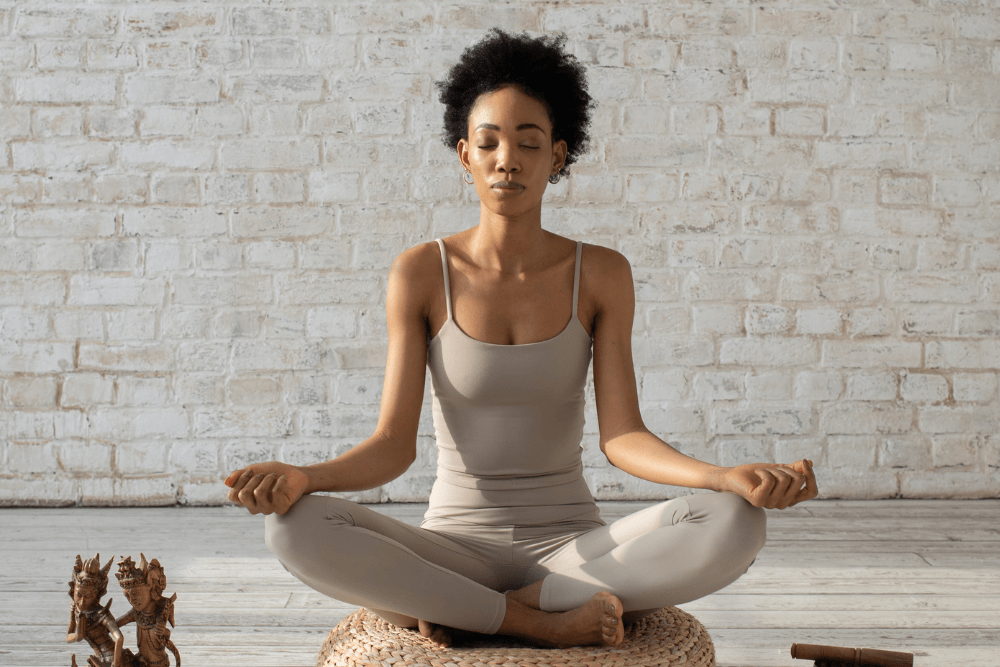Good Sleeping Habits Can Help You Thrive
- Category: Sleep
- February 8, 2022
Many people underestimate the power of sleep on mental health and wellness. While many may know that it is essential to get enough sleep, the quality of your sleep matters just as much. Good sleeping habits can help improve the quality of your sleep, benefiting your mental and physical health.
Why Sleep Matters
The National Institutes of Health (NIH) explains that getting enough sleep is essential to every part of your body. When it comes to the brain specifically, sleep affects our ability to solve problems, manage our moods, and remember vital information. Not getting enough sleep can lead to a number of health problems, including:
- Obesity
- Diabetes
- High blood pressure
- Heart disease
On the other hand, making sure that you are getting enough sleep can offer a wide variety of benefits. Some of these include:
- A stronger immune system
- Lower levels of stress
- A more balanced mood
- Reduced risk of diabetes
- More energy and focus
How Much Sleep Is Enough Sleep?
The amount of sleep that you need depends on how old you are. Typically, teenagers require around eight to ten hours of sleep per night. If you are older than 18, you only need about seven or more hours of sleep per night.
If you aren’t getting enough sleep for your age, you might need to focus on prioritizing sleep in your schedule. Getting at least eight to ten hours of sleep for teenagers is especially important, as sleep can affect your growth hormones and your ability to concentrate in school.
However, you might not be sure how much sleep you are getting per night. You can track your sleeping habits by recording how many hours you’ve slept over a few weeks. Tracking your sleeping hours might give you a better idea of how much sleep you are getting, if you are getting enough sleep, and whether or not you need to change your sleeping habits to get more sleep.
What Healthy Sleeping Habits Look Like
Healthy sleeping habits are all of the things you do before sleep to ensure that when you fall asleep, your sleep quality is good. Even if you are getting enough sleep for your age every night, you might find that you are still waking up feeling exhausted or grumpy. If you aren’t waking up feeling well-rested, it might be because of unhealthy sleeping habits. Luckily, there are many things you can do to implement healthier sleeping habits into your routine for better sleep.
Healthy sleeping habits can look like:
- Having a set bedtime:
Going to sleep at the same time every single night can help your body know that it’s time to sleep at your set bedtime. Try to keep the same bedtime even on weekends to keep your body’s rhythm stable.
- Avoid using screens an hour before you fall asleep:
It might be tempting to use your phone or watch TV right before bed. However, the artificial blue light from the screens can trick your body into staying awake, making it hard to fall asleep when you need to. Try making the hour before your bedtime a “no screens” hour to help your body know it’s almost time to sleep.
- Don’t exercise right before bed:
Exercising right before it’s time for you to sleep can actually energize you instead of exhaust you. If you want to exercise before bed, try a gentler form of exercise like yoga or stretching to help your mind and muscles relax.
- Make sure your bedroom is dark enough:
Ensuring your bedroom is dark enough can help you fall asleep and stay asleep easier.
- Avoid using stimulants or eating large meals at night:
Try not to use things like nicotine or consume caffeine right before bed. Having energy drinks, coffee, chocolate, or even eating a heavy meal a few hours before bed can energize you when it is time to fall asleep.
- Make a bedtime routine:
A bedtime routine can help you train your brain and body to know that it needs to start getting ready to fall asleep. You might take a warm bath, journal, read, or meditate to help you settle into a state of rest and relaxation.
Overall, what you do surrounding your bedtime does matter and can affect the quality of sleep you get. If your sleep environment isn’t peaceful or dark despite your efforts to follow healthy sleeping habits, you can also invest in sleep aids like an eye mask, earplugs, a white noise machine, and blackout curtains.
While it may take time for your body to adjust to your new healthy sleeping habits, the benefits are worth it. Your quality of sleep will improve, helping you thrive while you are awake.
Getting enough sleep is essential. Sometimes, our unhealthy sleeping habits can make us wake up exhausted and unhappy. Good sleeping habits are key in ensuring that a high quality of sleep will help improve your concentration, reduce your chances of getting sick, and feel happier overall. Some of these habits include having a set bedtime, implementing a routine, avoiding screens and stimulants before bed, and making sure your room is dark enough. At Headlight Health, we know how important sleep is to our overall physical and mental health. If you are having trouble sleeping, our licensed therapists can help you figure out why you may be struggling to get enough sleep. We treat the whole person using a secure telehealth platform so that you can access our services anywhere you might need them. Headlight Health can help you improve your quality of sleep to thrive in your everyday life. Call us today at (866) 249-6114 for more information.



